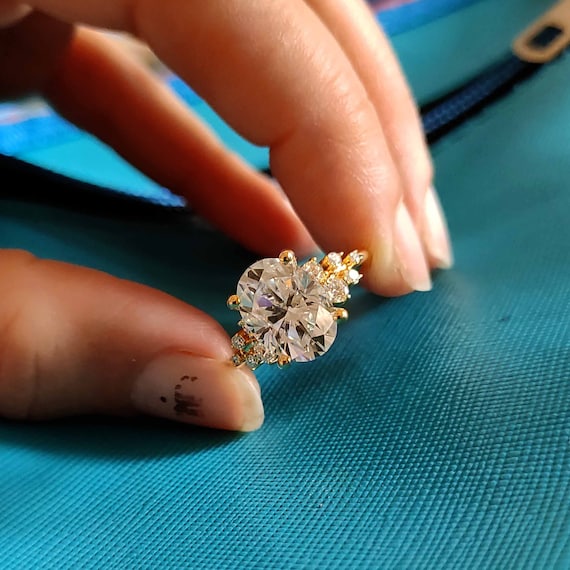
The engagement ring, often viewed as a symbol of love and commitment, can have a profound impact on mental health for both partners. This cherished piece of jewelry represents not just the union of two individuals but also carries emotional weight, expectations, and sometimes, pressure. Understanding how an engagement ring intersects with mental health can provide valuable insights into the dynamics of relationships and the importance of emotional well-being during this significant life transition.
The Symbolism of the Engagement Ring
An engagement ring symbolizes love, commitment, and the promise of a shared future. For many, it serves as a tangible reminder of their partner’s affection and dedication. However, the expectations surrounding engagement rings can lead to anxiety and stress. Couples may feel pressure to choose the “perfect” ring, one that matches not only personal tastes but also societal norms. This pressure can sometimes overshadow the joy of the engagement, leading to mental health challenges such as anxiety or feelings of inadequacy.
Financial Stress and Its Impact
The cost of an engagement ring can also play a significant role in mental health. According to various surveys, individuals often feel compelled to spend a substantial amount on a ring, sometimes leading to financial strain. This financial burden can create tension in relationships, potentially causing conflict and stress. Couples may experience anxiety about affording the ring or the associated costs of a wedding. This stress can contribute to feelings of overwhelm and negatively affect their overall mental well-being.
Expectations Versus Reality
The societal expectations surrounding engagement rings can lead to a disconnect between reality and personal desires. Many individuals may feel pressured to adhere to traditional norms, such as opting for a diamond ring, even if it doesn’t resonate with their personal values or preferences. This conflict can result in feelings of guilt or shame, impacting self-esteem and mental health. Couples must communicate openly about their preferences and values to alleviate some of this pressure.
The Emotional Rollercoaster of Engagement
Engagement is often a time filled with excitement and joy, but it can also be a period of emotional turmoil. The engagement ring can evoke a range of feelings, from happiness to anxiety, especially if one partner has different expectations. Individuals may grapple with fears about commitment or the pressure to live up to family or cultural expectations. Recognizing these emotions and addressing them openly can help partners navigate this transition more healthily and productively.
Coping Strategies
To foster positive mental health during the engagement period, couples can implement various coping strategies:
1. Open Communication: Engage in honest conversations about feelings, expectations, and concerns related to the engagement ring and the upcoming marriage.
2. Set a Budget: Establish a realistic budget for the engagement ring that aligns with both partners’ financial comfort levels, reducing financial stress.
3. Personalization: Choose a ring that reflects personal values and style rather than succumbing to societal expectations. A unique, meaningful ring can enhance emotional connection.
4. Seek Support: If feelings of anxiety or stress become overwhelming, consider seeking support from friends, family, or mental health professionals. Sharing concerns can provide perspective and reassurance.
5. Practice Mindfulness: Engage in mindfulness practices, such as meditation or yoga, to help manage stress and promote emotional well-being during this significant transition.
Conclusion
The engagement ring symbolizes a commitment to love and partnership but can also bring challenges that impact mental health. By understanding the emotional implications and societal pressures surrounding engagement rings, couples can approach their engagement with a healthier mindset. Through open communication, realistic expectations, and a focus on personal values, partners can cultivate a positive experience that strengthens their relationship and fosters mental well-being. Embracing this journey with compassion and understanding will ultimately lead to a more meaningful engagement period, paving the way for a happy and fulfilling marriage.